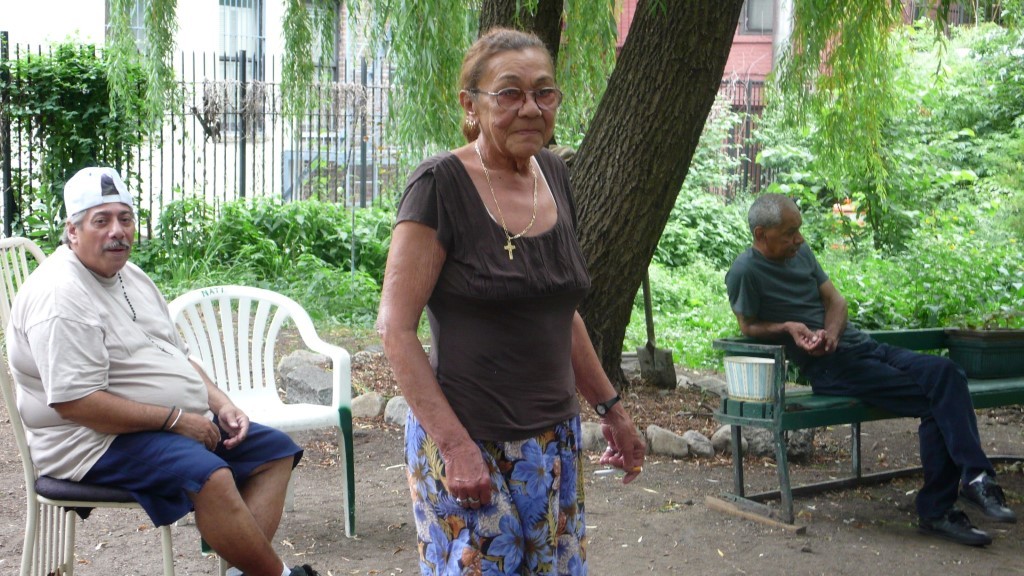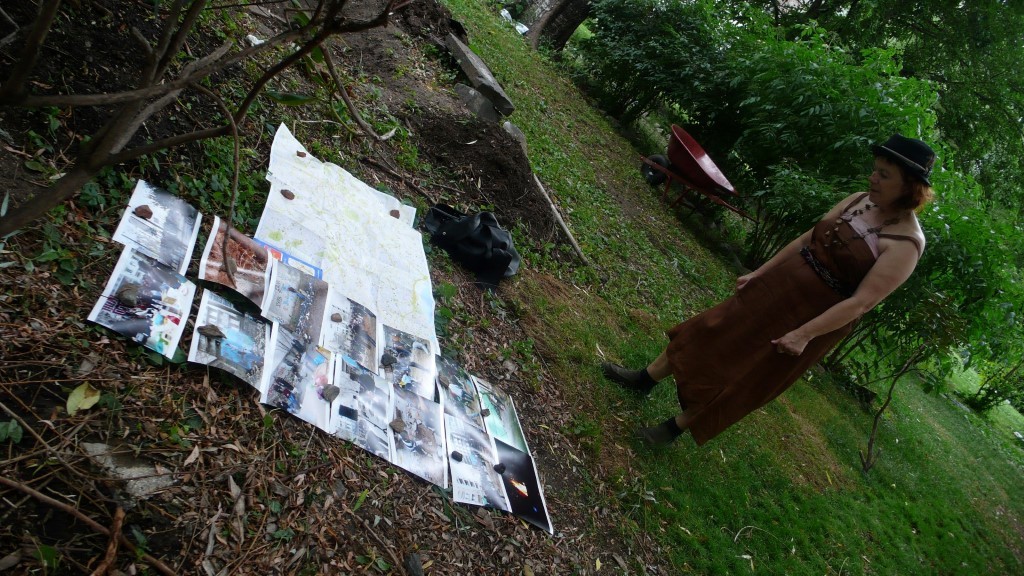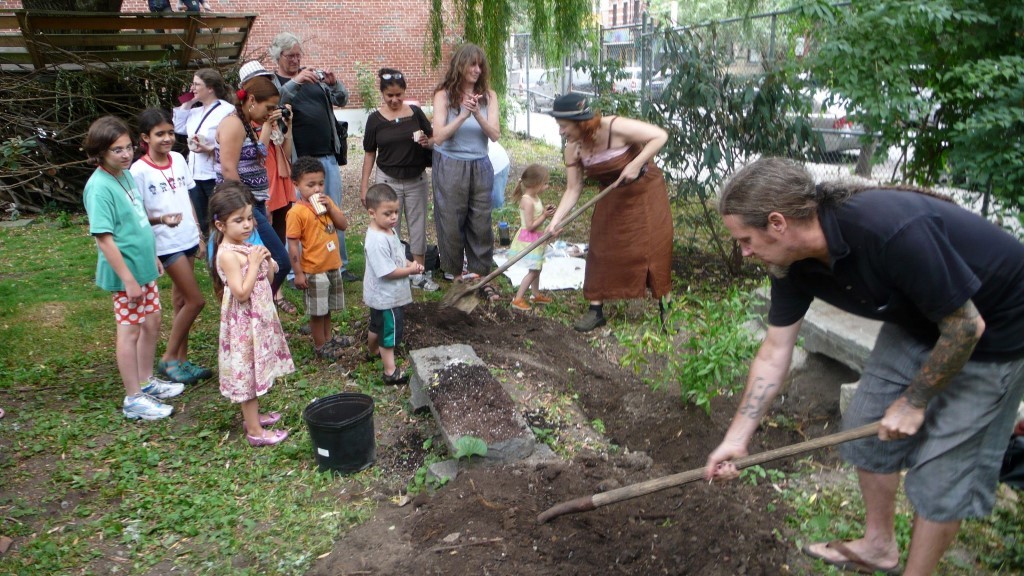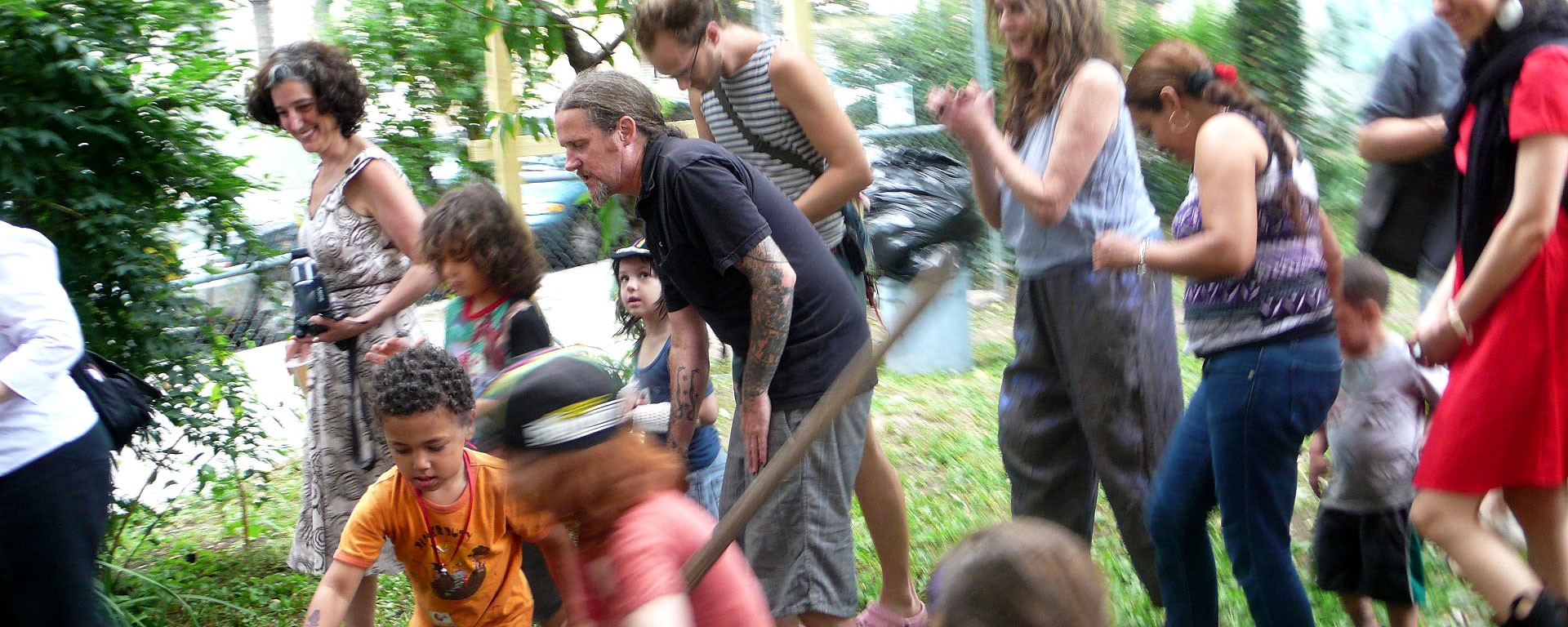“Madre Terra- Migrant Trees” is a collaborative project by the Nomadic Architecture Network (Eleni Tzirtzilaki Stefanos Handelis), Georgia Traganou, Lydia Matthews, Natalia Roumelioti and Gabrielle Bendiner-Viani in cooperation with Parson’s, the New School for Design University. It comes as a sequel to “Open House”, an event presented under the umbrella of “Unbuilt”, the thematic series organized by SARCHA and hosted at the Byzantine Museum in Athens, Greece.
Scheduled to take place on June 22nd, the current project consists in the symbolic gesture of planting a tree and seeds in El Jardín del Paraíso, a community garden situated at the Lower East Side of New York city. We will of course make a toast for the occasion and offer food seasoned with herbs we cherish as a living memory of the places they/we come from: Eleni and Stefanos will bring along herbs not only from Greece but also from other places where they have lived, including Italy, Cuba and Portugal.
We will chart the paths taken by people over time that led them to the place they call home, the Lower East Side and we will talk about their gardening practices, daily life, how the community garden came to be etc.
Initially, we had wanted to transport a bitter orange tree, characteristic of the neighborhoods of Athens, but it proved impossible due to a ban on imports of citrus trees. Therefore, we resorted to the idea of transporting another tree of a suitable genus in compliance with regulations. Little did we know as we were later informed that any tree would have to stay in quarantine for two growing periods! Consequently, we decided to spare the tree such an ordeal and opted for the simplest solution of planting a tree bought locally. Moreover, after many complications and despite having secured authorization, we decided not to bring seeds from Greece as our colleagues from Pelliti advised us that indigenous varieties constitute a wealth of biological resources, i.e. a heritage that must be protected and strict procedures should apply. In recent years there have been many cases of bio-piracy where corporations from the developed world take advantage of the genetic resources and traditional knowledge and technologies of developing countries. Such practices contribute to inequality between developing countries rich in biodiversity, and developed countries served by international companies, particularly in the pharmaceutical industry. Conversely,community seed banks are at the core of conservation efforts, serving as repositories for seeds, for both storage and diversification.

In El jardín del Paraíso there will also be screenings of material shot in Athens by the Nomadic Architecture Network and partners. You will see a parking lot in Exarcheia Square transformed to a community park, neighborhood streets lined with bitter orange trees, the flora of the Athenian landscape on Filopappou Hill and in the area around the Acropolis.
By raising questions of migration and about the earth and its current plight, the action stresses our common destiny. When we say “common” we are also thinking of plants. Used for nutrition or decoration, many were introduced by travelers in the places where they chose to settle and thus, like people, since ancient times, trees have migrated to distant lands. The difficulties faced during our trip from Athens to NY in connection to our consignment will be built into the project narrative.
The title “Madre Terra” I owe to Evemar, a Brazilian Indian woman who migrated to Italy. I met her on the Greek island of Sifnos: “we all depend on the hospitality of earth and so it is our duty to show all due respect during our stay here” she would say…

What we are experiencing right now is the exact opposite. Our understanding of the natural world is skewed as we’ve lost our sense of interdependence which is how nature functions. In the wild search for profit, vital resources like water are privatized and large natural territories savagely plundered. Genetically modified seeds violate the right of people to earn their livelihoods by continuing time-tested traditions of collective land management and culture. In fact, biotechnology is being pursued to patch-up the problems that have been caused by previous agrochemical technologies (pesticide resistance, pollution, soil degradation, etc.), which were promoted by the same companies now leading the bio-revolution. Poor farmers bear the brunt of it all.
The Copenhagen Climate Conference will be remembered for those backstage negotiations of certain governments to the exclusion of both civil society and the official representatives of the UN. Also, it was a shocking manifestation of the reluctance of governments to act now in order to prevent climatic chaos. Instead of committing to drastically reduce emissions and act responsibly in the struggle against poverty, they once again prioritized narrow interests.

The World People’s Conference of Climate Change and the Rights of Mother Earth held in Cochabamba from April 19 through 22 aspired to amplify the voices of those who were not heard in Copenhagen. Delegates were invited from communities that are already paying a high cost due to the climate change, along with social movements that are actively promoting a different energy model and “climatic justice”. The choice of Cochabamba in Bolivia was symbolic as the city became known worldwide in 2000 after a successful uprising of the inhabitants against privatization of the local waterworks and the ensuing exorbitant price increases.
On June 22nd, our action in El Jardín del Paraíso will retrace these urgent questions in an open dialogue in which we hope to get everyone involved.
Communities, people, gardens, cities, a web of interdependence that we want to bring out and in the process, draw attention to the social importance of ecology and partnership in place of hierarchal domination.
Eleni Tzirtzilaki,
Special thanks to the members and the Committee for El Jardín del Paraíso, Peliti and the Tree (http://life-tree1.blogspot.com/).
Translation from Greek: Manos Kornelakis

